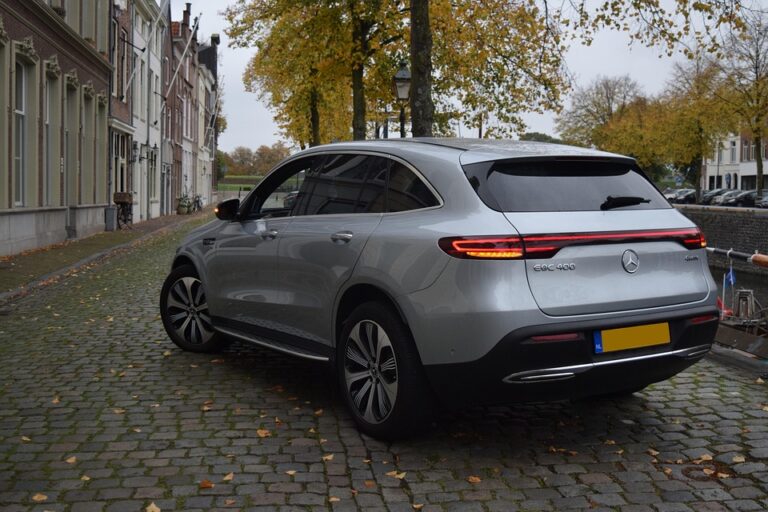The Future Is Electric: How EVs Are Transforming Our Transportation Landscape
Electric vehicles (EVs) are no longer just a trend, but a pivotal part of the future of transportation. As we accelerate into this new decade, the shift towards electrification is crucial for combating climate change, reducing our carbon footprint, and reshaping urban landscapes. This article sheds light on how EVs are transforming transportation and what the future holds for this game-changing technology.
The Surge in Electric Vehicles
The global electric vehicle market is experiencing unprecedented growth. According to the International Energy Agency, the number of EVs on the roads surged past 10 million in 2020, and forecasts suggest that this number could reach 145 million by 2030. This significant increase is fueled by advancements in technology, government policies promoting clean energy, and growing public awareness regarding environmental issues.
Why the Shift to EVs?
-
Environmental Benefits: Traditional combustion engines are notorious for polluting the air, contributing significantly to greenhouse gas emissions. EVs, in contrast, produce zero exhaust emissions and can even be powered by renewable energy sources such as solar or wind, further minimizing their environmental impact.
-
Cost-Effectiveness: Though the initial purchase price of an electric vehicle may be higher than that of gasoline-powered cars, the long-term savings on fuel costs and maintenance can offset this difference. Estimates show that EV owners can save upwards of $800 a year on fuel alone.
- Technological Advancements: Innovations in battery technology continue to enhance the performance and range of EVs. Recent breakthroughs in lithium-ion and solid-state batteries have made it possible for electric vehicles to travel further on a single charge, making them more practical for everyday use.
Government Initiatives and Policy Support
Many countries are actively promoting the adoption of EVs through various initiatives. For instance:
-
Incentives: Governments worldwide offer tax rebates and incentives to encourage consumers to purchase EVs. In the U.S., the federal government provides a tax credit of up to $7,500 for the purchase of new electric vehicles.
- Infrastructure Investment: The expansion of charging stations is crucial for the widespread acceptance of EVs. Countries like Norway, which has seen the highest per capita sales of electric vehicles, feature extensive networks of charging outlets, making it convenient for users.
EV Adoption Across the Globe
Different regions present unique challenges and opportunities for electric vehicle adoption. In Europe, strict emissions regulations are pushing automakers towards electrification at an accelerated pace. In contrast, Asian markets, particularly China, lead the way in production and sales of EVs:
- China alone accounted for over half of the world’s EV sales in 2020, demonstrating the potential of the Asian market in driving global change.
The Impact of Electric Vehicles on Urban Infrastructure
As cities expand and populations grow, the demand for sustainable transportation methods becomes increasingly evident. EVs are poised to reshape our urban landscapes in various ways:
Reduced Noise Pollution
Electric vehicles operate much quieter than their combustion counterparts. Reduced noise levels can significantly improve the quality of life in urban areas, creating more pedestrian-friendly spaces that promote community interaction.
Smart City Integrations
The rise of EVs also coincides with advancements in smart city technologies. Cities can integrate electric vehicle charging stations into their public transit systems, along with smart grid technology to optimize energy usage, making urban transportation systems more efficient.
A Cleaner Future
To illustrate the tangible benefits of EV adoption, consider this analogy: If the entire world switched to electric vehicles, we could reduce global oil consumption by approximately 18 million barrels a day. This shift would not only decrease our reliance on fossil fuels but also foster a healthier planet for future generations.
Looking Ahead: The Road to an Electric Future
The trajectory forward for electric vehicles looks promising. With ambitious targets set for reducing carbon emissions, automakers are investing heavily in electric models. Tesla, for instance, continues to lead the pack, but traditional automakers like Ford and Volkswagen are ramping up their EV production to compete.
Challenges to Overcome
Despite the thriving market for EVs, several challenges remain:
- Charging Infrastructure: While significant progress has been made, the charging network still needs to be expanded, especially in rural areas.
- Battery Disposal: As the number of EVs increases, so does the need for effective recycling programs for used batteries.
- Initial Costs: Reducing the upfront costs of electric vehicles will be essential for wider adoption.
Conclusion
Electric vehicles are undoubtedly reshaping our transportation landscape, offering a sustainable alternative to traditional gas-powered vehicles. As governments and industries collaborate to address the challenges of EV adoption, the future looks bright for this transformative technology. The journey towards a fully electrified future is just beginning, but the road ahead promises a cleaner, more efficient way to travel.
For more information on related topics, check out our articles on Sustainable Transportation Innovations and The Rise of Green Technology. Additionally, for more insights on EV trends, refer to resources from the International Energy Agency.
Suggested Images
-
Image of a variety of electric vehicles charging at a station
Alt Text: Electric Vehicles (EVs) charging station in urban area.
- Image showcasing a smart city with EVs integrated into public transport
Alt Text: Electric Vehicles (EVs) integrated within a smart city infrastructure.
Incorporating electric vehicles into our daily lives and transportation systems effectively can lead to a cleaner, more sustainable future that benefits everyone. Embrace the electric revolution today!


